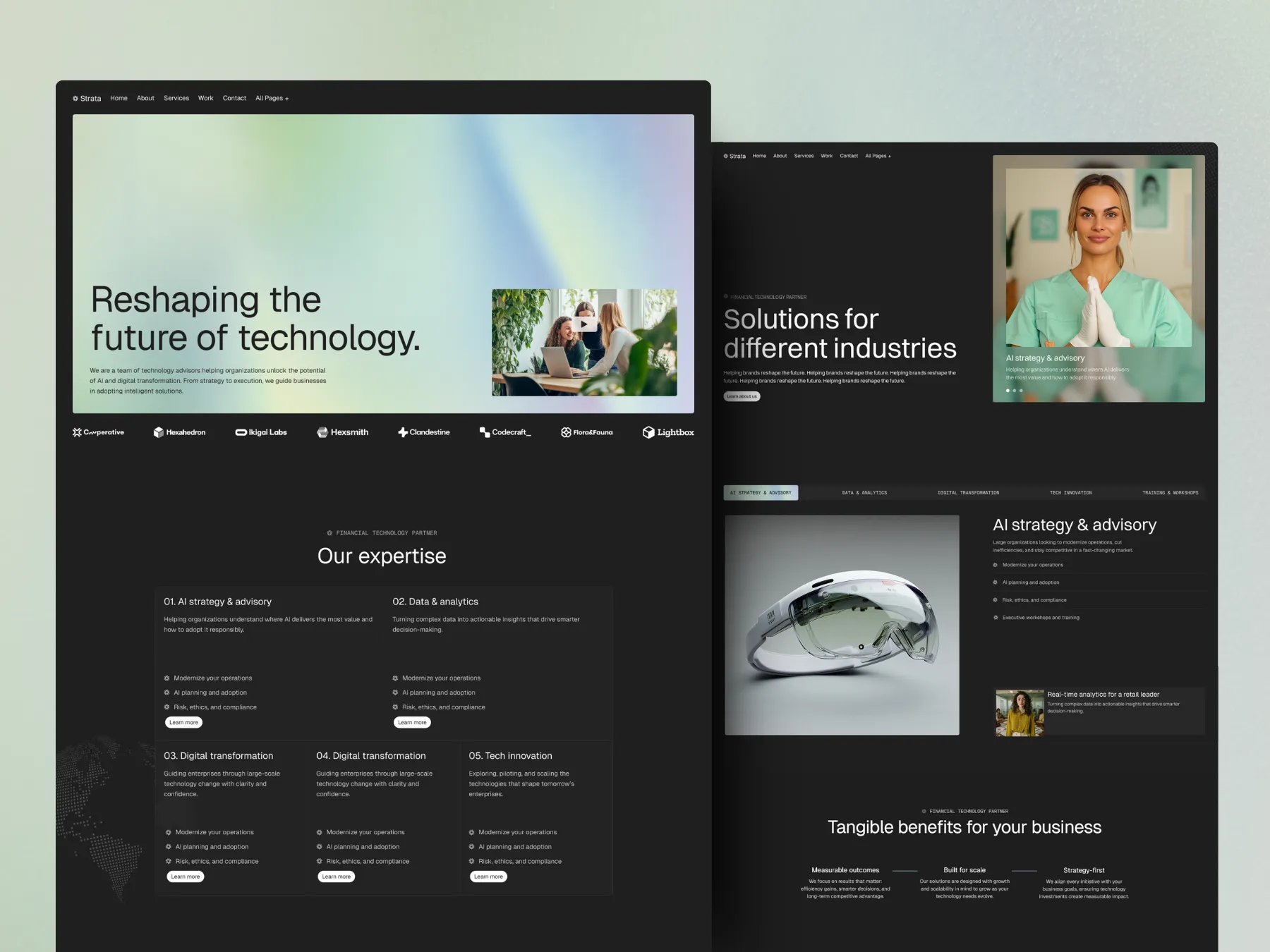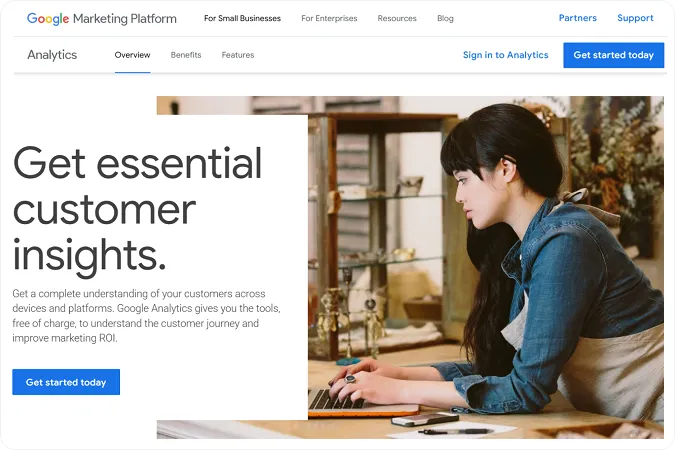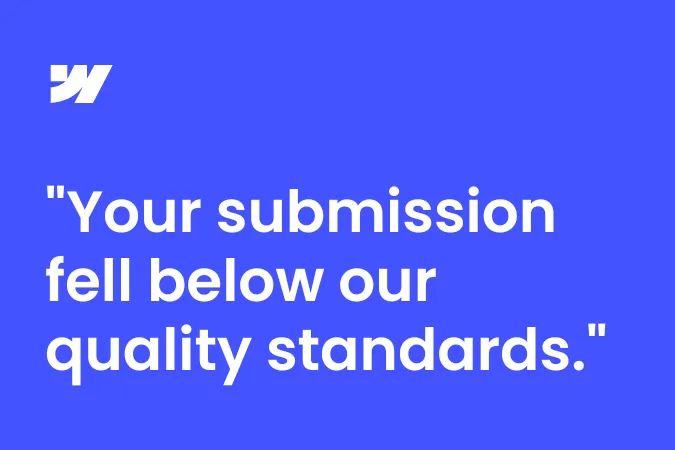Introduction
With platforms like Instagram, TikTok, and LinkedIn dominating online engagement, many startups and small businesses wonder: “Do I even need a website, or is social media enough?”
It’s a valid question. After all, social media is free, easy to use, and gives businesses instant access to potential customers. Many brands have built entire followings without ever launching a website. But if you want long-term control over your business, relying solely on social media is a mistake.
Social media platforms are borrowed space. Your visibility depends on ever-changing algorithms, and your entire presence can be restricted, shadowbanned, or even deleted overnight.
A website, on the other hand, is something you own and control. It allows you to show up in Google searches, collect leads, process transactions, and establish credibility in ways social media simply can’t.
So, is a website still necessary in 2025? If you care about sustainable growth, the answer is yes. In this post, we’ll break down exactly what a website does that social media can’t—and when you might be able to get by without one.
What social media can and can’t do for your business
What social media does well
Social media is a powerful tool for brand visibility and audience engagement. Platforms like Instagram, TikTok, and LinkedIn make it easy to connect with potential customers and grow a following. If your content hits the right note, it can reach thousands—or even millions—overnight. This makes social media great for:
- Brand awareness: Quick exposure to a large audience, especially for visually appealing or viral content.
- Community engagement: Direct interaction with customers through comments, messages, and live sessions.
- Fast content distribution: Easy to share updates, promotions, and behind-the-scenes content.
- Trend leverage: Businesses can capitalize on trending sounds, memes, and topics to increase visibility.
Where social media falls short
While social media is great for marketing, it’s not a reliable foundation for business growth because you don’t control the platform. Algorithms, policies, and visibility can change overnight. The key limitations include:
- Algorithm dependency: Your reach is entirely controlled by the platform—one update can slash engagement.
- Lack of searchability: Social media posts aren’t structured for long-term discovery; older content quickly gets buried.
- Limited customization & Control: You can’t fully control the design, layout, or customer journey.
- No SEO benefits: Social profiles don’t help you rank on Google. If someone searches for services in your industry, they’ll find websites, not Instagram pages.
- Platform risk: Accounts can be suspended, restricted, or hacked, leaving you with no backup.
Social media is a great marketing tool but not a business foundation. That’s where a website comes in—it’s something you own, optimize, and control, giving your business stability beyond social algorithms.
What a website does that social media can’t
Social media is a marketing tool. A website is a business asset. If you’re only using social media, you’re building an audience on a platform you don’t own. A website, on the other hand, gives you full control over your brand, leads, and long-term growth.
Here’s what a website does that social media simply can’t:
1. Full control & ownership
On social media, you’re at the mercy of the platform. A sudden algorithm change, a suspended account, or even a hacked profile can wipe out your entire online presence overnight.
With a website, none of that happens. You own it. You control it. No one can shut it down or limit your reach. You decide the design, the experience, and how people interact with your brand.
2. Search visibility & SEO
Your social media posts might go viral, but they don’t show up when someone searches Google for a service you offer. A website does.
Google Search = Real Customers Looking for Solutions. If someone searches “best fitness coach in NYC” or “affordable web design for startups,” they’re not scrolling Instagram. They’re Googling. And if you don’t have a website, you don’t exist in that search.
Blog Posts, Case Studies, and Landing Pages Bring Long-Term Traffic. A well-written blog post can drive traffic for years. A social media post lasts a few days at best.
3. Professional credibility & trust
When someone is seriously considering your business—whether it’s a customer, investor, or potential partner—the first thing they’ll do is Google you. If all they find is an Instagram profile, it’s a red flag.
A website signals legitimacy. It tells people, “This is a real business, not just an Instagram side hustle.” Plus:
Having a custom domain email (name@yourbusiness.com) builds trust. A professional email looks far more credible than a Gmail or Yahoo address.
Media, investors, and serious clients expect a website. If you’re looking for press features, partnerships, or funding, a website is a must.
4. Lead generation & direct sales (Beyond DMs & comments)
Relying on DMs to close sales is inefficient. A website streamlines everything.
Contact forms and booking systems capture leads automatically—no back-and-forth messages needed.
E-commerce and payment integrations allow instant transactions without platform restrictions.
Email collection tools help you build an audience you actually own (instead of just followers controlled by an algorithm).
5. No platform lock-in & future-proofing
Social media platforms change constantly. Facebook was once essential for businesses—now it’s pay-to-play. Twitter? A mess. TikTok? At risk of being banned in multiple countries.
Your website is the one place that doesn’t depend on external platforms. You’re not at the mercy of sudden changes, and you don’t have to rebuild your audience every time a platform declines.
Bottom Line
Social media is great for marketing and audience engagement, but it’s not a replacement for a website. A website is where serious business happens—where customers find you, trust you, and buy from you without relying on algorithms or third-party rules.
So, do you still need a website in 2025? If you care about long-term growth, stability, and control—the answer is yes.
When social media alone might (just) be enough
Are there situations where a business can survive without a website? Technically, yes—but only in very specific cases.
If your business model relies entirely on social media-driven sales and engagement, a website may not be essential (at least in the early stages). Here are some examples:
1. Solopreneurs selling low-cost, impulse-buy products
If you’re selling low-ticket items—like handmade jewelry, digital stickers, or trendy accessories—and all your traffic comes from viral TikToks, you might get away with using Instagram Shopping or a third-party platform like Etsy.
But even then, you’re still dependent on one platform’s rules, fees, and algorithms. If Instagram limits your reach or Etsy increases its transaction fees, you have no backup plan.
2. Early-stage businesses testing an idea
If you’re just validating a product or service idea, it might make sense to start on social media before investing in a website. But once you confirm demand, a website becomes essential for scaling up and automating sales.
3. Local businesses relying 100% on word-of-mouth
A tiny coffee shop in a small town might not need a website if all their customers come from foot traffic or personal referrals. But even local businesses benefit from Google search visibility, especially for tourists and new customers.
Reality check: Even these businesses would benefit from a website
None of these cases are true exceptions—they’re just scenarios where a website isn’t urgent.
Even if you’re running a business that technically works without a website, you’re still missing out on:
- Better visibility on Google (people don’t search for businesses on Instagram.A professional and trustworthy brand image
- Long-term stability, instead of depending on a single platform
- So while some businesses might delay launching a website, eventually, having one becomes a necessity—not a luxury.
Which helps people find your business in the age of AI? Websites or social media?
With AI-powered search changing how people discover businesses, the question isn’t just “Do I need a website?” but “How do I make sure my business actually shows up when people search for it?”
In 2025, people are no longer relying only on Google to find businesses. They’re asking AI assistants like ChatGPT, Google Gemini, Microsoft Copilot, and Perplexity AI for recommendations instead of typing search queries.
And here’s the key difference: AI tools pull information from websites, not social media.
How AI tools like ChatGPT recommend businesses
When someone asks ChatGPT, “What are the best SaaS website template providers?” or “Where can I find a personal branding photographer in LA?” the AI doesn’t browse Instagram or TikTok. Instead, it generates answers based on:
- Business websites (official pages, service descriptions, and structured content)
- Google search rankings (AI models often reference businesses that rank well)
- Online directories (like Clutch, Trustpilot, or Google Business listings)
- News articles and blogs (if your business is featured, AI might reference it)
What doesn’t get pulled into AI results?
- Instagram captions
- TikTok videos
- Facebook or LinkedIn posts (unless indexed via a website)
This means if your business only exists on social media, AI tools won’t recognize it as a reliable source—and you’ll miss out on an entirely new way customers are finding businesses.
How websites help AI tools find your business
- AI-powered search engines (Google SGE, Perplexity AI) prioritize website content when generating business recommendations.
- Websites allow structured content that AI can easily process, making them more likely to appear in AI-generated lists.
- AI models favor official sources over transient social media posts, meaning a strong website increases credibility.
TL;DR – Key takeaways
- Social media is great for brand visibility but not for long-term discoverability. Your reach depends on algorithms, and posts disappear quickly.
- AI tools like ChatGPT, Google Gemini, and Microsoft Copilot don’t pull from social media. They rely on websites, structured data, and online directories to recommend businesses.
- Google search is still the #1 way people find businesses. A website helps you rank for searches like “best marketing agency in NYC” or “affordable web design for startups.”
- AI-powered search (Google SGE, Perplexity AI) prioritizes websites over social media. Businesses with strong websites are more likely to appear in AI-driven answers.
- Websites provide professional credibility. Potential clients, investors, and partners expect a business to have a proper website—not just an Instagram page.
- Lead generation and direct sales are easier with a website. You control contact forms, bookings, and checkout flows without relying on DMs or social media platform restrictions.
- The best strategy? Use both. Social media drives awareness, but a website ensures long-term visibility, stability, and control over your business presence.
- Bottom line: If you want to be found on Google, AI tools, and business directories—not just on TikTok or Instagram—a website is non-negotiable in 2025.








.webp)